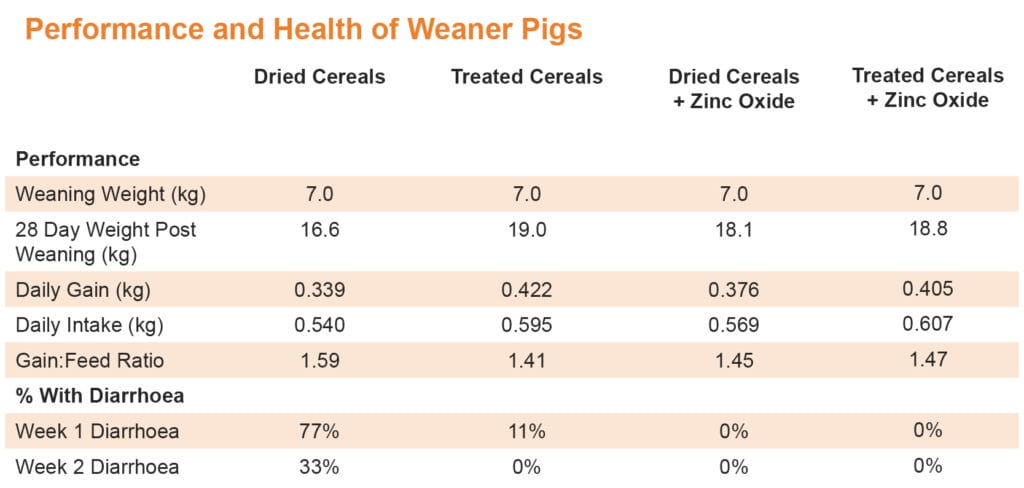Treated barley as a solution to zinc oxide free weaner diets – new trial results.
An experiment carried out in UCD Lyon’s Farm, in collaboration with Adesco and BiORBIC SFI Centre, has shown that treated organic acid treated cereals offer performance and health benefits over dried cereals, offering a potential solution for Zinc Oxide (ZnO) free diets.
In the trial, 220 pigs were blocked for sex, weight and litter and then assigned to 1 of 4 diets;
- Dried Cereals
- Treated Cereals (MycoCURB ES)
- Dried Cereals + ZnO
- Treated Cereals (MycoCURB ES) + ZnO
In the trial, pigs fed with organic acid treated barley without zinc oxide outperformed those fed on dried barley and produces equivalent performance to those fed on dried barley with zinc oxide.
In line with findings from previous trials, the results here show that animal performance can be improved by using treated cereals instead of dried. Those pigs fed the treated cereal diet had a higher daily feed intake and daily gain and better FCR compared to the dried cereals without zinc oxide. When the trial compared performance against dried cereal with zinc oxide, treated cereal performed marginally better, indicating that it has the potential to offer a solution to diet management with no zinc oxide, a fact that is reinforced by the results that showed that adding zinc oxide to treated barley produced no performance difference.
Treated grain diets reduced diarrhoea by 89%
77% of the pigs fed the dried cereal without zinc oxide showed symptoms of diarrhoea in the first-week post-weaning while no pigs on the zinc oxide diet showed such symptoms. Feeding a zinc oxide free diet but using treated cereals reduced the symptoms of diarrhoea to 11% in week 1, reducing to 0% in week 2. This is very positive news in light of the pending zinc oxide ban in June 2022.
Carbon footprint of swine diets reduced
Treated cereal diets also offer a lower carbon footprint compared to dried cereals. In independently verified LCA analysis, treating grain and beans has been shown to reduce carbon footprint by 66%.
The studies will be updated shortly, as we further investigate the mode of action.

